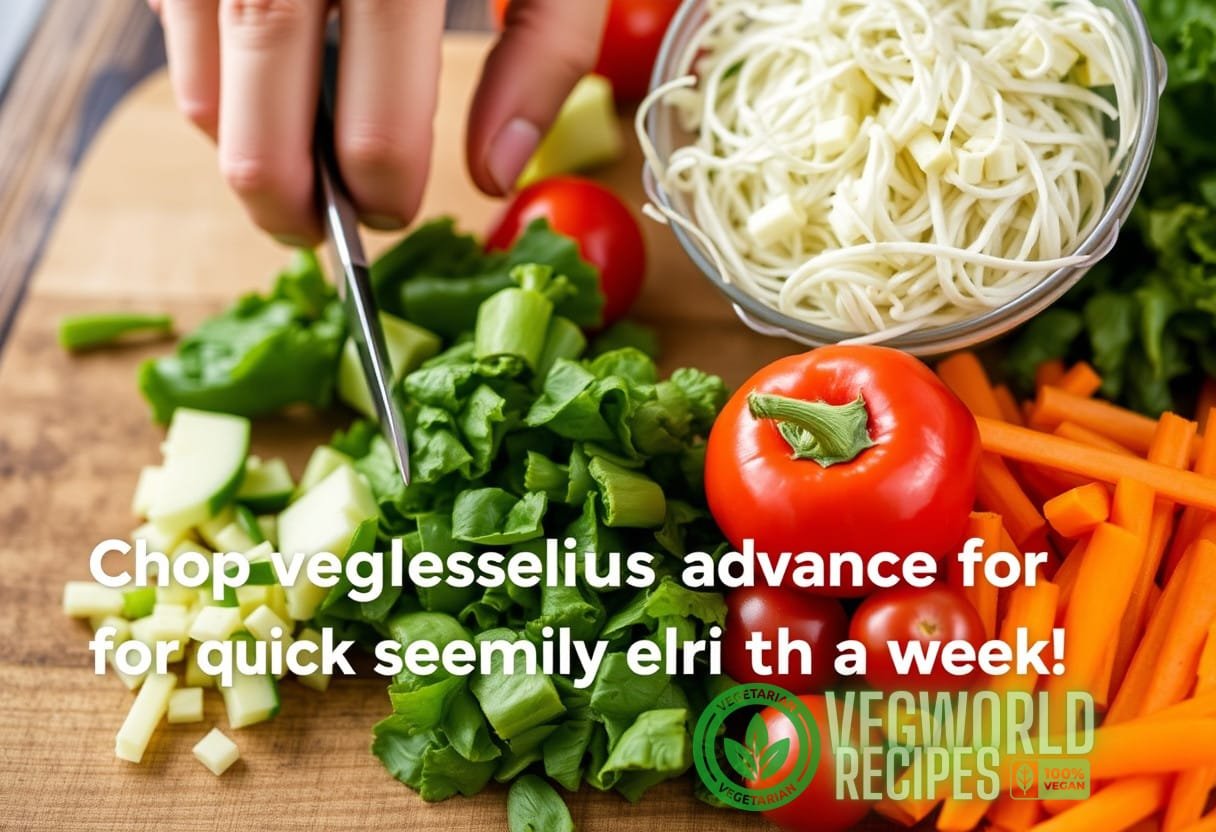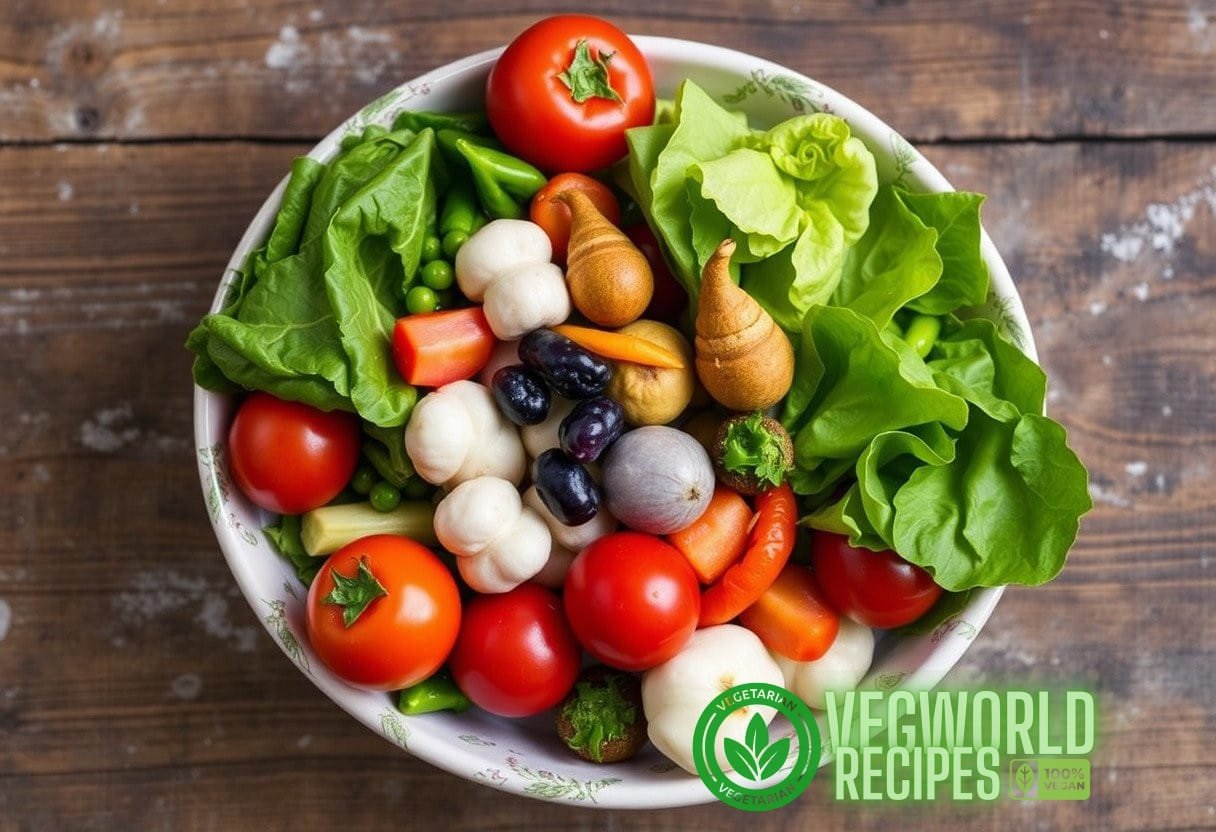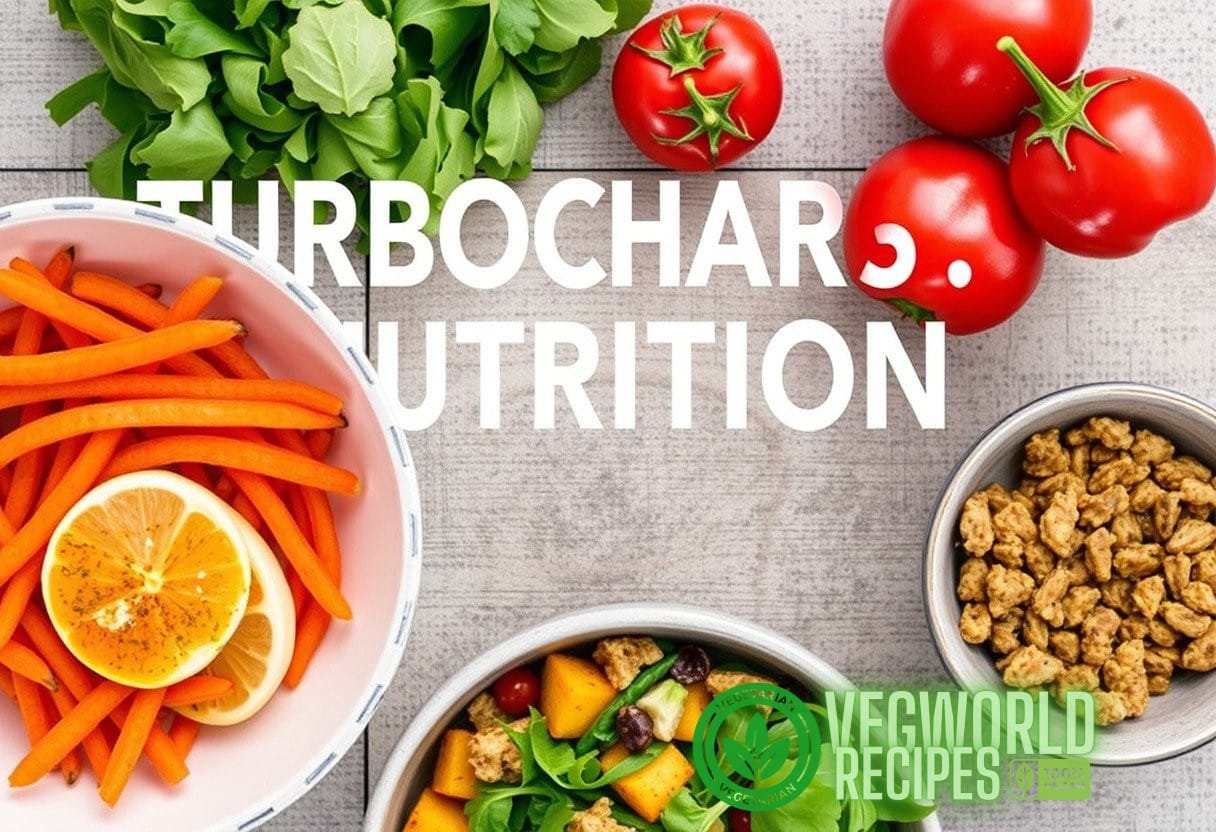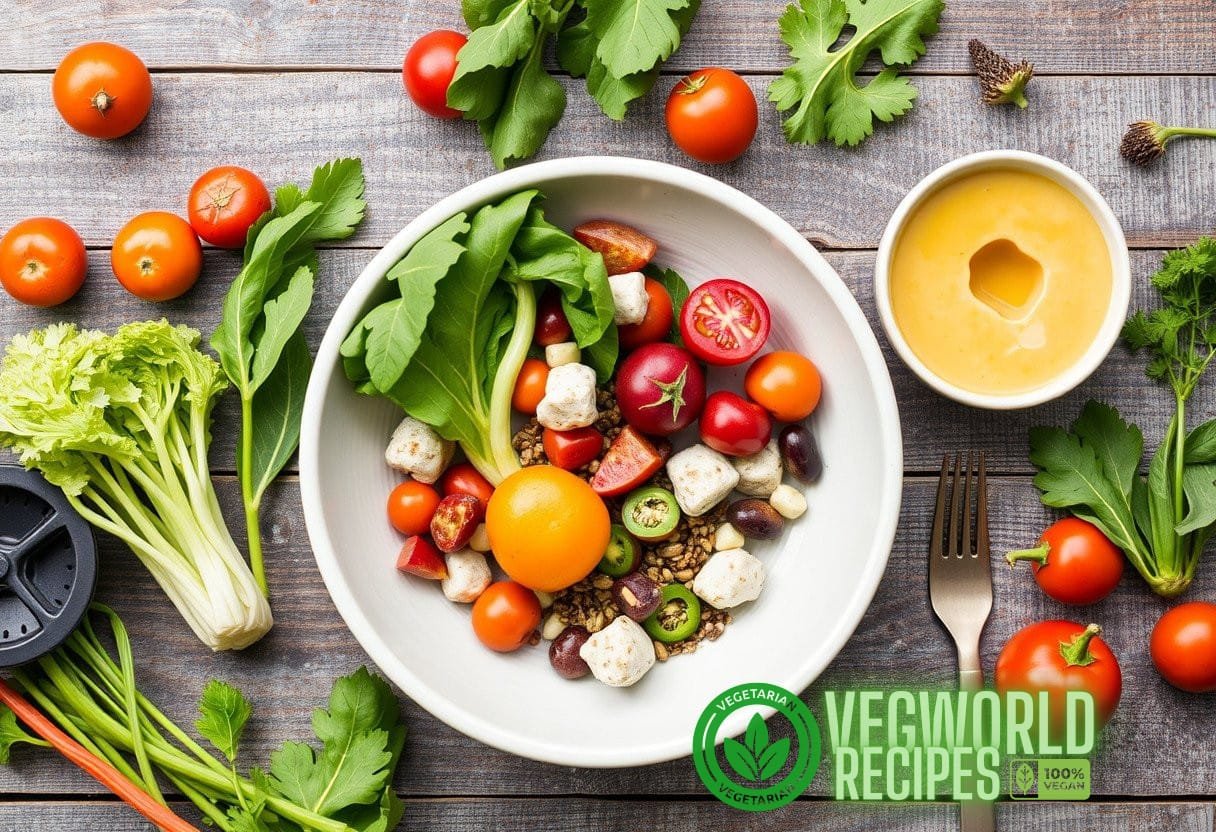Introduction to Accelerated Nutrition
In an era where time is of the essence, quick vegetarian nutrition becomes an indispensable aspect of a balanced diet. With the rise of health-conscious individuals and environmental awareness, vegetarianism is taking center stage. However, many may struggle with meal planning and preparation, especially when aiming for a nutritious yet efficient routine.
The Science of Nutrition: Understanding Macronutrients
Nutrition consists of various essential macronutrients: carbohydrates, proteins, and fats, each serving specific roles in the body. Understanding these roles is crucial for achieving quick vegetarian nutrition.
Carbohydrates
Carbs are the body’s primary source of energy. It’s important to choose complex carbohydrates for sustained energy. Some examples include:
- Whole grains (quinoa, brown rice, barley)
- Legumes (lentils, chickpeas, black beans)
- Vegetables (sweet potatoes, carrots, beets)
Complex carbs release energy slowly, which is beneficial during prolonged activities and helps maintain blood sugar levels.
Proteins
Proteins are essential for building and repairing tissues. Vegetarian sources of protein include:
- Tofu and tempeh
- Seitan
- Nuts and seeds
- Legumes
Incorporating a diverse range of protein sources can ensure that you get all essential amino acids. According to the USDA Dietary Guidelines, adults should aim for 46 to 56 grams of protein per day.
Fats
Fats play a critical role in absorbing vitamins and providing energy. Healthy fats can be incorporated through:
- Avocado
- Olive oil
- Nuts and seeds
It’s essential to focus on unsaturated fats while limiting trans and saturated fats to promote heart health.
The Importance of Micronutrients
Micronutrients, including vitamins and minerals, are vital to maintaining optimal health. Vegetarians need to pay close attention to specific micronutrients, particularly B12, iron, and calcium.
Vitamin B12
This essential vitamin is primarily found in animal products, making supplementation important for vegetarians. Consider fortified foods like:
- Plant-based milk
- Cereals
- Nutritional yeast
The recommended dietary allowance (RDA) for B12 is 2.4 micrograms for adults.
Iron
Vegetarian sources of iron include lentils, chickpeas, and leafy greens. However, non-heme iron (plant-based) is less bioavailable than heme iron found in meat. To enhance absorption:
- Pair iron sources with vitamin C (citrus fruits, bell peppers)
- Avoid consuming coffee or tea with meals
Women aged 19 to 50 need about 18 mg of iron daily, while men and postmenopausal women require 8 mg.
Calcium
Calcium is crucial for bone health. Good vegetarian sources include:
- Leafy greens (kale, bok choy)
- Fortified plant-based milk
- Tofu (calcium-set)
The recommended intake for adults is 1,000 mg daily, increasing to 1,200 mg for women over 50 and men over 70.
Efficient Meal Crafting Techniques
Crafting meals with speed and efficiency does not mean sacrificing nutrition. Here are some strategies for quick vegetarian nutrition:
Batch Cooking
Preparing large quantities of food at once can significantly reduce cooking time during busy weekdays. Consider the following tips:
- Cook grains in bulk and refrigerate or freeze for later use.
- Prepare protein sources, such as beans or lentils, in larger amounts.
- Chop vegetables in advance for quick assembly during the week.

Meal Prepping
Designing a meal prep system can streamline your cooking process:
- Use clear containers to organize pre-portioned meals.
- Label ingredients for easy identification and use.
- Incorporate a variety of colors and textures to enhance visual appeal and nutrition.
One-Pot Meals
One-pot recipes can save time and reduce cleanup:
- Consider vegetable stir-fries with tofu or tempeh.
- Utilize slow cookers or pressure cookers for stews and soups.
- Combine grains, legumes, and vegetables into a single nutritious dish.
For example, a quinoa and black bean bowl topped with avocado and salsa creates a hearty, nutrient-dense meal.
Superfoods for a Quick Nutritional Boost
Integrating superfoods into your vegetarian meals can enhance their nutritional profile dramatically. Here are some top contenders:
- Chia Seeds: Rich in omega-3 fatty acids, fiber, and protein. Ideal for smoothies and overnight oats.
- Spirulina: A powerful algal supplement high in protein and vitamins, often added to smoothies or energy bars.
- Quinoa: A complete protein that includes all nine essential amino acids, making it an excellent grain choice.
Exploring Quick Vegetarian Meal Ideas
With the focus on speed and efficiency, here are some nutritious meal ideas that fit within the quick vegetarian nutrition realm:
Pasta Primavera
A 20-minute meal made with whole-grain pasta, seasonal vegetables, and a splash of olive oil guarantees sustenance and satisfaction. Adding chickpeas or lentils can increase protein content.
Vegetable Stir-Fry
Quickly sauté your favorite veggies, tofu, and a choice of sauces. Serve over brown rice or quinoa for a complete meal. Aim to include a variety of colors for a nutrient boost.
Chickpea Salad
A can of chickpeas, mixed greens, tomatoes, cucumber, and your dressing of choice creates a refreshingly light meal. This can be prepared in under ten minutes and is packed with protein and fiber.
Overnight Oats
This simple breakfast can be made the night before. Combine rolled oats, almond milk, chia seeds, and fruit for an energy-packed start to your day.
Research and Case Studies on Vegetarian Nutrition
Numerous studies highlight the benefits of vegetarian diets. According to a report by the American Dietetic Association, appropriately planned vegetarian diets are healthful, nutritionally adequate, and may provide health benefits in the prevention and treatment of certain diseases.
Additionally, a study published in the journal Nutrients indicated that vegetarians had lower risks for chronic diseases such as obesity, heart disease, and type 2 diabetes, primarily when diets are rich in fruits, vegetables, and whole grains.
Leveraging Technology for Quick Meal Prep
In today’s digital age, technology can streamline meal preparation:
- Meal planning apps can help in organizing recipes and shopping lists.
- Online grocery delivery services can save time on sourcing ingredients.
- Cooking channels and blogs focus on quick vegetarian nutrition and can provide fresh ideas and inspiration.
Integrating Sustainable Practices
Incorporating sustainability into your quick vegetarian meal preparation can also be a priority:
- Opt for seasonal, local produce to reduce carbon footprints.
- Participate in community-supported agriculture (CSA) programs for fresh ingredients.
- Utilize leftover ingredients creatively to minimize food waste.
Conclusion
By embracing the concepts of accelerated nutrition, adopting efficient meal crafting techniques, and exploring the biochemical foundations of vegetarian diets, individuals can reap the full benefits of quick vegetarian nutrition while enjoying a variety of delectable meals.
For more information on meal prepping and nutritional strategies, explore our related articles:
- Vegetarian Meal Prepping Techniques
- List of Superfoods and Their Benefits



